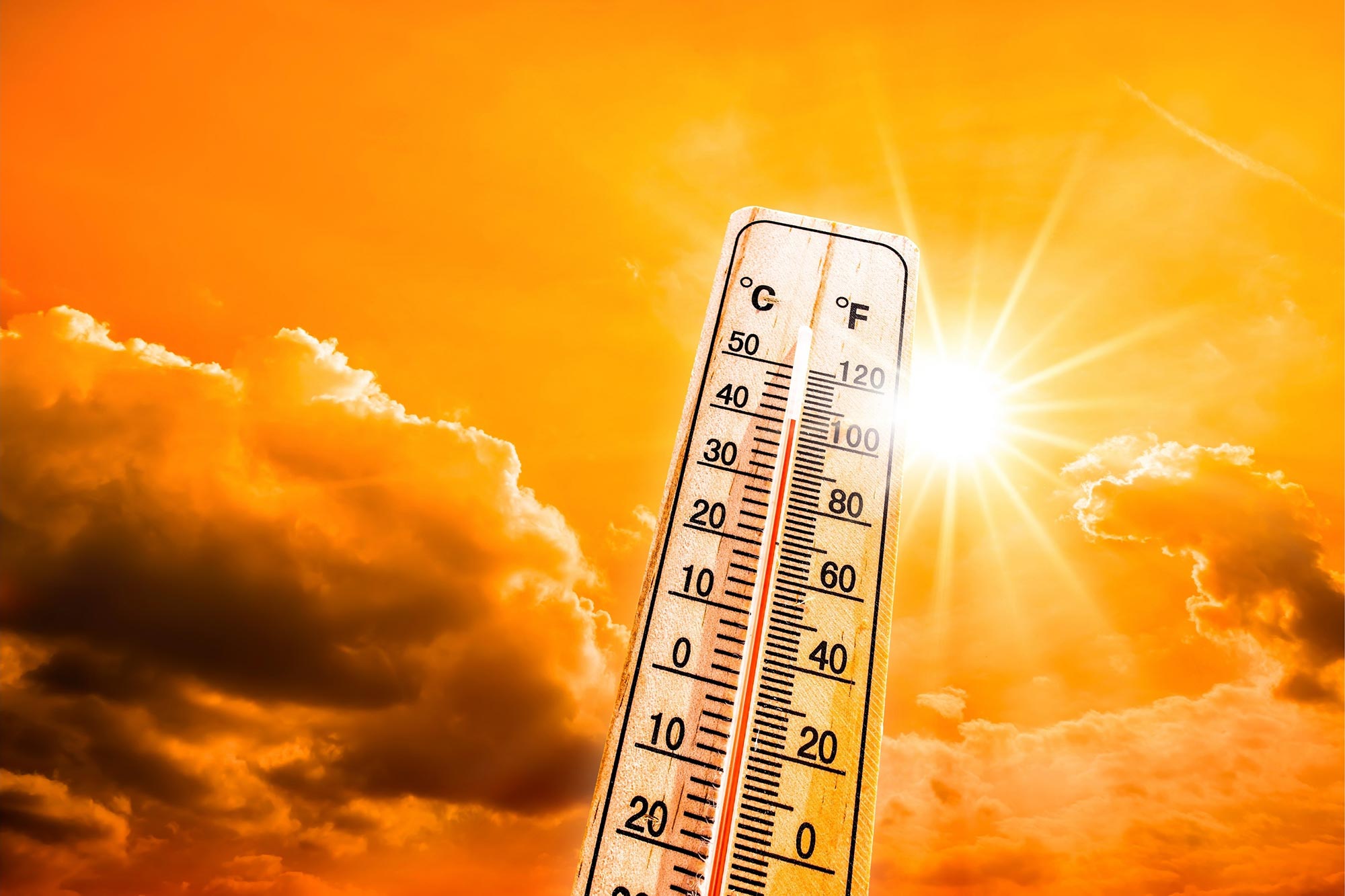
Heatwaves are more than just uncomfortable—they can be deadly. But what exactly is a heatwave? It's a prolonged period of excessively hot weather, which may be accompanied by high humidity. These scorching spells can wreak havoc on health, agriculture, and infrastructure. Why do they happen? Factors like climate change, urbanization, and natural weather patterns all play a role. How can you stay safe? Simple steps like staying hydrated, avoiding strenuous activities during peak heat, and seeking air-conditioned environments can make a big difference. Want to know more? Here are 40 intriguing facts about heatwaves that will help you understand and cope with these extreme weather events.
Key Takeaways:
- Heatwaves are prolonged periods of extremely hot weather, causing health issues, environmental damage, and economic strain. They are becoming more frequent and severe due to climate change.
- Preparation and awareness are key to coping with heatwaves. Early warnings, green spaces, and technological solutions can help mitigate their impact on people and the planet.
What is a Heatwave?
A heatwave is a prolonged period of excessively hot weather, which may be accompanied by high humidity. These events can have significant impacts on health, infrastructure, and the environment. Here are some fascinating facts about heatwaves.
-
Heatwaves are defined differently around the world. In the U.S., a heatwave is typically three or more days of temperatures above 90°F (32°C).
-
The World Meteorological Organization (WMO) defines a heatwave as five or more consecutive days of temperatures exceeding the average maximum by 9°F (5°C).
Historical Heatwaves
Heatwaves have been recorded throughout history, often with devastating effects. Let's look at some notable examples.
-
The 1936 North American heatwave remains one of the most severe, with temperatures reaching 121°F (49°C) in North Dakota.
-
Europe experienced a deadly heatwave in 2003, causing over 70,000 deaths. France was particularly hard-hit.
-
The 2010 Russian heatwave led to wildfires and crop failures, resulting in an estimated 56,000 deaths.
Causes of Heatwaves
Understanding what triggers these extreme weather events can help in preparing for them.
-
High-pressure systems trap heat in an area, preventing cooler air from moving in. This is a common cause of heatwaves.
-
Urban heat islands, where cities are significantly warmer than rural areas, can exacerbate heatwave conditions.
-
Climate change is increasing the frequency and intensity of heatwaves worldwide.
Health Impacts
Heatwaves can have serious health consequences, especially for vulnerable populations.
-
Heat exhaustion and heatstroke are common during heatwaves. Symptoms include dizziness, nausea, and confusion.
-
Dehydration is a major risk, as people lose more fluids through sweat.
-
Respiratory problems can worsen due to increased air pollution during heatwaves.
-
The elderly, children, and those with pre-existing health conditions are most at risk.
Environmental Effects
Heatwaves don't just affect people; they also have significant environmental impacts.
-
Prolonged heat can lead to droughts, affecting water supplies and agriculture.
-
Wildfires are more likely during heatwaves due to dry conditions.
-
Marine heatwaves can devastate coral reefs and marine life.
Economic Consequences
The financial toll of heatwaves can be staggering, affecting various sectors.
-
Agriculture suffers as crops fail and livestock struggle in extreme heat.
-
Energy consumption spikes as people use air conditioning, straining power grids.
-
Infrastructure can be damaged, with roads and railways buckling under intense heat.
Record-Breaking Heatwaves
Some heatwaves have set records that still stand today.
-
Death Valley, California, holds the record for the highest temperature ever recorded on Earth at 134°F (57°C) in 1913.
-
The 2019 European heatwave saw temperatures reach 114°F (46°C) in France, breaking previous records.
Preparing for Heatwaves
Preparation can mitigate the impacts of heatwaves. Here are some strategies.
-
Early warning systems can alert people to upcoming heatwaves, allowing them to take precautions.
-
Planting trees and creating green spaces can help cool urban areas.
-
Building designs that incorporate natural ventilation and shading can reduce indoor temperatures.
Coping Mechanisms
During a heatwave, certain actions can help keep you safe and comfortable.
-
Staying hydrated is crucial. Drink plenty of water, even if you don't feel thirsty.
-
Avoid strenuous activities during the hottest parts of the day.
-
Wear lightweight, loose-fitting clothing to stay cool.
-
Use fans and air conditioning to maintain a comfortable indoor temperature.
Global Warming and Heatwaves
The link between global warming and heatwaves is becoming increasingly clear.
-
Rising global temperatures are making heatwaves more frequent and severe.
-
The Arctic is warming twice as fast as the rest of the planet, contributing to more extreme weather patterns.
-
Reducing greenhouse gas emissions can help mitigate the impact of future heatwaves.
Interesting Facts
Some heatwave facts are just plain intriguing.
-
Heatwaves can cause roads to melt. In Australia, a 2013 heatwave caused asphalt to become sticky and soft.
-
The term "heatwave" was first used in the 1890s.
-
Animals also suffer during heatwaves. In 2019, a heatwave in Australia caused thousands of bats to die from heat stress.
-
Some plants can go dormant during extreme heat to survive.
Technological Solutions
Technology can play a role in managing heatwave impacts.
-
Smart grids can help manage increased energy demand during heatwaves.
-
Heat-resistant crops are being developed to withstand extreme temperatures.
-
Cooling centers provide a refuge for people without air conditioning.
Future Predictions
What does the future hold for heatwaves?
-
Scientists predict that by 2050, heatwaves could become even more frequent and intense.
-
Urban planning will need to adapt to manage the increased risk of heatwaves.
-
Public awareness and education will be crucial in helping communities prepare for and cope with future heatwaves.
Heatwaves: A Hot Topic
Heatwaves aren't just about feeling hot. They impact health, agriculture, and even the economy. Knowing the facts can help us prepare better. From historical records to modern-day challenges, heatwaves have always been significant. They can cause heatstroke, wildfires, and power outages. Understanding their patterns and effects is crucial for safety and planning. With climate change, heatwaves are becoming more frequent and intense. Staying informed and taking precautions can make a big difference. Simple steps like staying hydrated, avoiding peak sun hours, and checking on vulnerable people can help. Heatwaves remind us of nature's power and the importance of being prepared. So, next time the temperature soars, remember these facts and stay safe.
Frequently Asked Questions
Was this page helpful?
Our commitment to delivering trustworthy and engaging content is at the heart of what we do. Each fact on our site is contributed by real users like you, bringing a wealth of diverse insights and information. To ensure the highest standards of accuracy and reliability, our dedicated editors meticulously review each submission. This process guarantees that the facts we share are not only fascinating but also credible. Trust in our commitment to quality and authenticity as you explore and learn with us.


